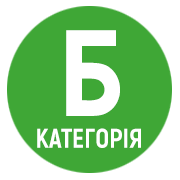CONCEPTUAL BASES FOR THE FORMATION OF THE LINGUISTIC PERSONALITY OF FUTURE PHILOLOGISTS-TRANSLATORS
DOI:
https://doi.org/10.32689/maup.philol.2024.3.4Keywords:
secondary language personality, intercultural communication, language competence, translation, philologyAbstract
The article deals with the conceptual foundations of the formation of the linguistic personality of future philologiststranslators as a necessary element of training specialists for intercultural communication. The relevance of the study is due to the growing need for highly qualified specialists who are able to effectively carry out intercultural communication in a culturally diverse environment. In today’s society, where the exchange of information and interaction between representatives of different linguistic and cultural groups is becoming increasingly intense, the professional training of philologists and translators plays an important role. The development of a linguistic personality that is able to flexibly adapt to the peculiarities of another culture while maintaining objectivity and tolerance is a key task of the educational system. These tasks become especially relevant in the context of integration processes that require a high level of interlingual competence. The purpose of the article is to define the conceptual foundations of the formation of the linguistic personality of future philologists-translators, to study the main theoretical approaches that contribute to the development of a translator’s comprehensive professional competence and ensure effective teaching of intercultural communication. The main attention is focused on theoretical approaches to this issue. The authors define the key principles of translator training, including communicative, intercultural, cognitive, psycholinguistic, and discourse approaches. It has been established that each of the approaches contributes to the development of a complex linguistic personality capable of adequately conveying meanings, cultural contexts and emotional shades of a foreign language utterance. As a result of the integrated application of these approaches, future philologists-translators acquire a high level of professional competence that allows them to successfully perform intercultural mediation tasks.
References
Горошкін І. Концептуальні засади формування мовної особистості майбутніх перекладачів. Педагогіка вищої та середньої школи. 2013. Вип. 39. С. 189–195.
Жигалкіна Ю. М. Вторинна мовна особистість у контексті міжкультурної комунікації. Наукові праці. Серія : Філологія. Мовознавство. Вип. 282. Т. 294. URL: https://lib.chmnu.edu.ua/pdf/naukpraci/movoznavtvo/2017/2 94-282-7.pdf
Зінукова Н. В. Усний переклад у зовнішньоекономічній сфері: теорія і методика навчання магістрів-філологів : монографія. Дніпро: Університет імені Альфреда Нобеля, 2017. 424 с.
Кабаченко І. Л. Міжкультурна комунікація в перекладі. Актуальні проблеми та методики навчання перекладу : тези доп. ХІ наук. конф., м. Харків, 15–16 квіт. 2021 р., Дніпро, 2021. С. 29–30.
Литвин О. Г. Формування мовної культури і риторичної майстерності здобувачів технічних закладів вищої освіти. Закарпатські філологічні студії. 2023. Вип. 30. С. 43–47.
Пасічник Т. Д. Аналіз підходів до визначення структурних компонентів професійної компетентності викладача перекладу. Science and Education a New Dimension. Pedagogy and Psychology. 2019. VII (82), Issue: 202. С. 41–44.
Приходько В. Б., Киселюк Н. П., Найдюк О. В. Роль перекладача в міжкультурному діалозі. Наукові записки Національного університету «Острозька академія». Серія «Філологія». 2020. Вип. 9(77). С. 64–66.
Світлична О. Р. Методика навчання майбутніх перекладачів усного послідовного двостороннього перекладу у фінансово-банківській галузі (англійська та українська мови) : автореф. дис. … канд. пед. наук. К., 2015. 26 с.
Філософський енциклопедичний словник. URL: https://terms-intercultural-communication.slovaronline.com/
Фролова І. Є. Культурні чинники перекладацької діяльності. Актуальні проблеми та методики навчання перекладу : тези доп. ХІ наук. конф., м. Харків, 15–16 квіт. 2021 р., Харків, 2021. С. 65–66.






